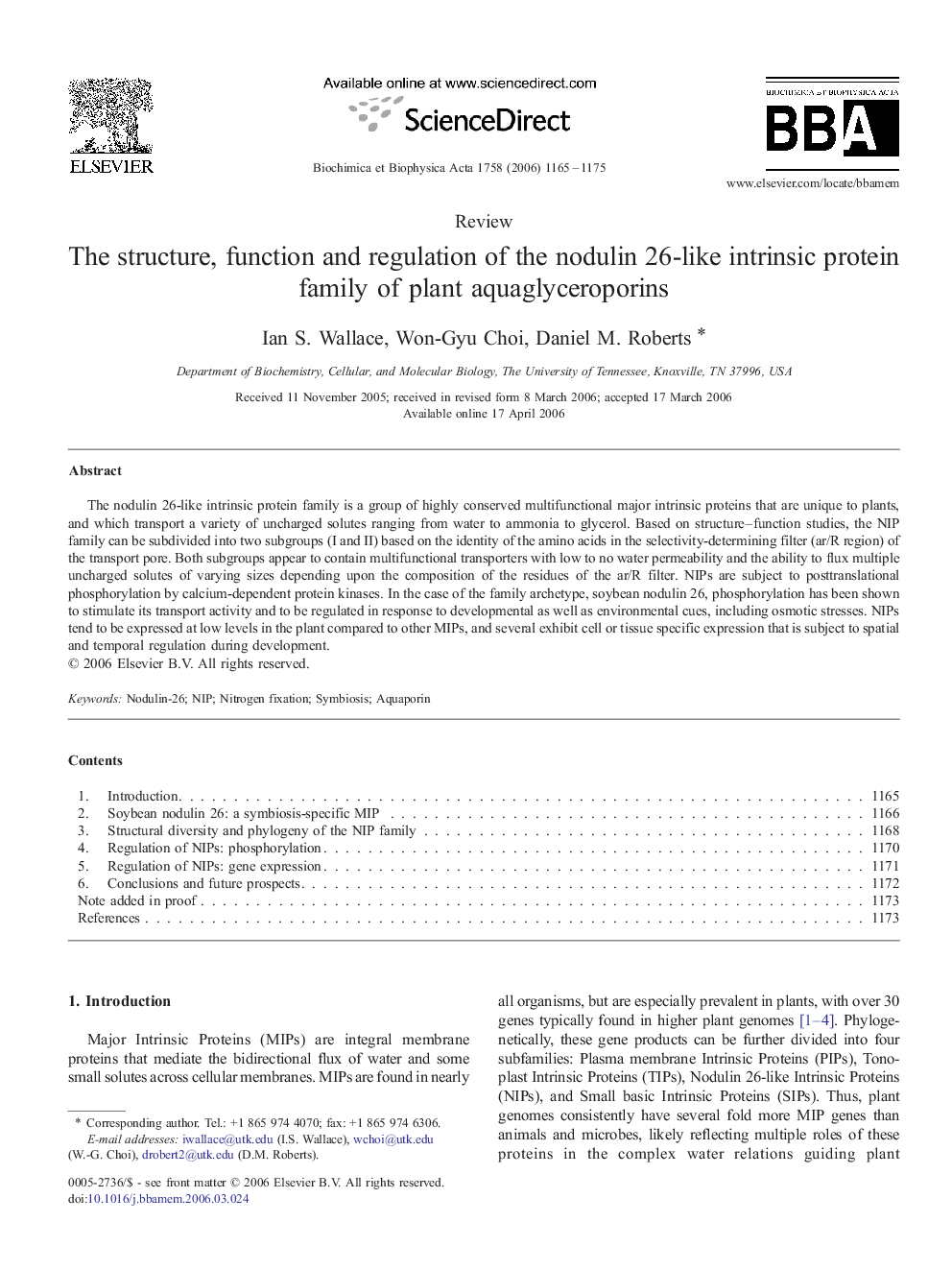| Article ID | Journal | Published Year | Pages | File Type |
|---|---|---|---|---|
| 1946069 | Biochimica et Biophysica Acta (BBA) - Biomembranes | 2006 | 11 Pages |
The nodulin 26-like intrinsic protein family is a group of highly conserved multifunctional major intrinsic proteins that are unique to plants, and which transport a variety of uncharged solutes ranging from water to ammonia to glycerol. Based on structure–function studies, the NIP family can be subdivided into two subgroups (I and II) based on the identity of the amino acids in the selectivity-determining filter (ar/R region) of the transport pore. Both subgroups appear to contain multifunctional transporters with low to no water permeability and the ability to flux multiple uncharged solutes of varying sizes depending upon the composition of the residues of the ar/R filter. NIPs are subject to posttranslational phosphorylation by calcium-dependent protein kinases. In the case of the family archetype, soybean nodulin 26, phosphorylation has been shown to stimulate its transport activity and to be regulated in response to developmental as well as environmental cues, including osmotic stresses. NIPs tend to be expressed at low levels in the plant compared to other MIPs, and several exhibit cell or tissue specific expression that is subject to spatial and temporal regulation during development.
